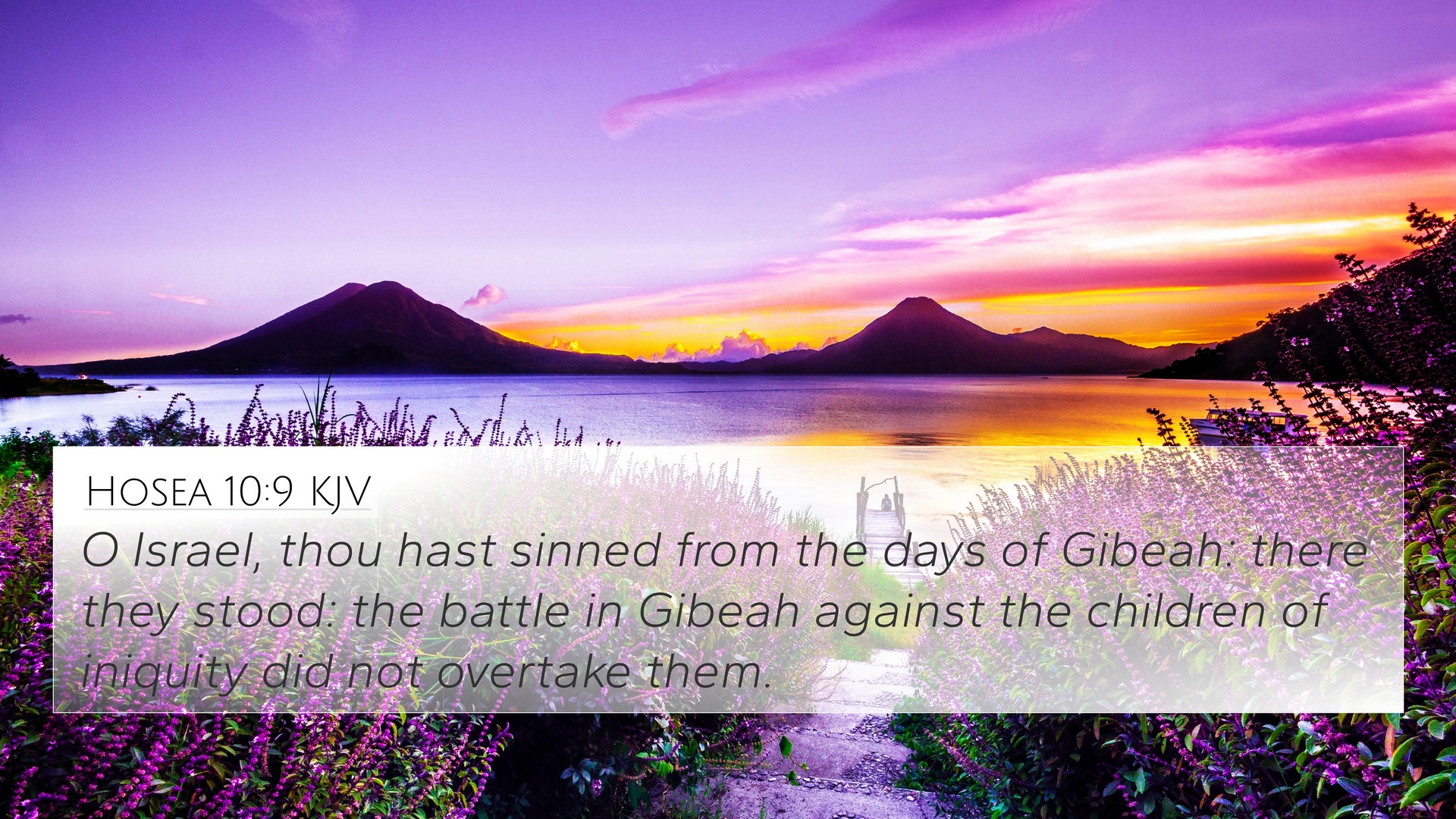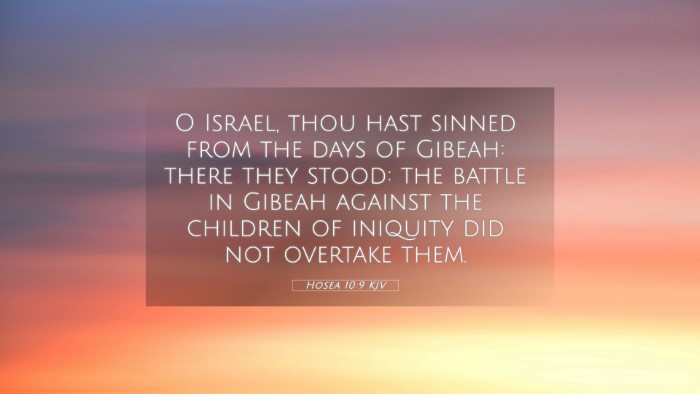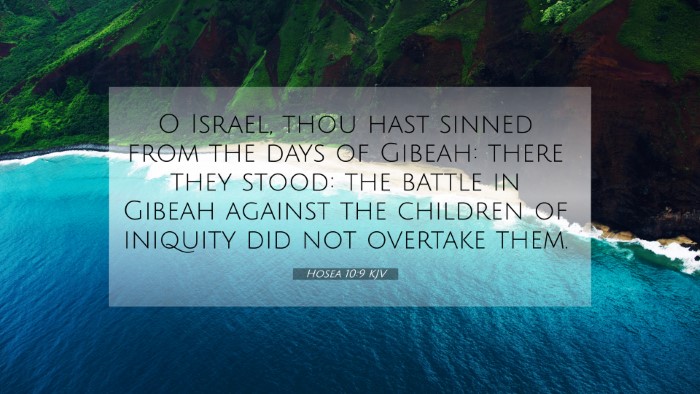Old Testament
Genesis Exodus Leviticus Numbers Deuteronomy Joshua Judges Ruth 1 Samuel 2 Samuel 1 Kings 2 Kings 1 Chronicles 2 Chronicles Ezra Nehemiah Esther Job Psalms Proverbs Ecclesiastes Song of Solomon Isaiah Jeremiah Lamentations Ezekiel Daniel Hosea Joel Amos Obadiah Jonah Micah Nahum Habakkuk Zephaniah Haggai Zechariah MalachiHosea 10:9 Similar Verses
Hosea 10:9 Cross References
O Israel, thou hast sinned from the days of Gibeah: there they stood: the battle in Gibeah against the children of iniquity did not overtake them.
Uncover the Rich Themes and Topics of This Bible Verse
Listed below are the Bible themes associated with Hosea 10:9. We invite you to explore each theme to gain deeper insights into the Scriptures.
Hosea 10:9 Cross Reference Verses
This section features a detailed cross-reference designed to enrich your understanding of the Scriptures. Below, you will find carefully selected verses that echo the themes and teachings related to Hosea 10:9 KJV. Click on any image to explore detailed analyses of related Bible verses and uncover deeper theological insights.
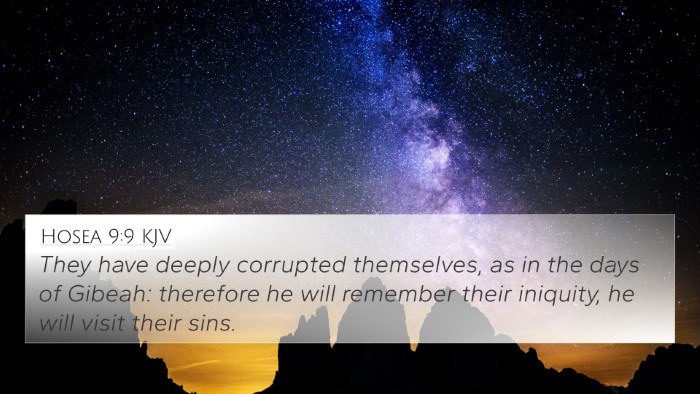
Hosea 9:9 (KJV) »
They have deeply corrupted themselves, as in the days of Gibeah: therefore he will remember their iniquity, he will visit their sins.
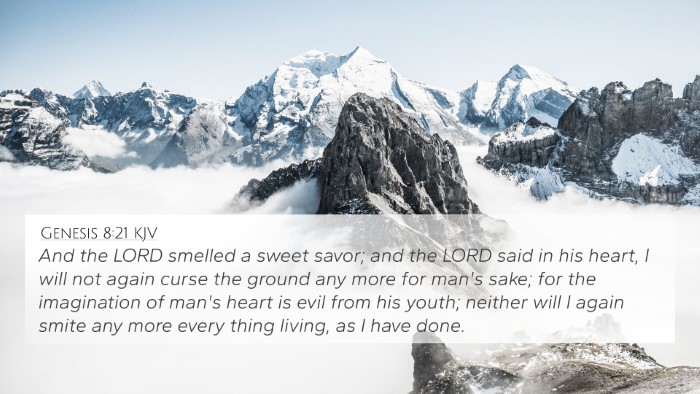
Genesis 8:21 (KJV) »
And the LORD smelled a sweet savor; and the LORD said in his heart, I will not again curse the ground any more for man's sake; for the imagination of man's heart is evil from his youth; neither will I again smite any more every thing living, as I have done.

Genesis 6:5 (KJV) »
And God saw that the wickedness of man was great in the earth, and that every imagination of the thoughts of his heart was only evil continually.
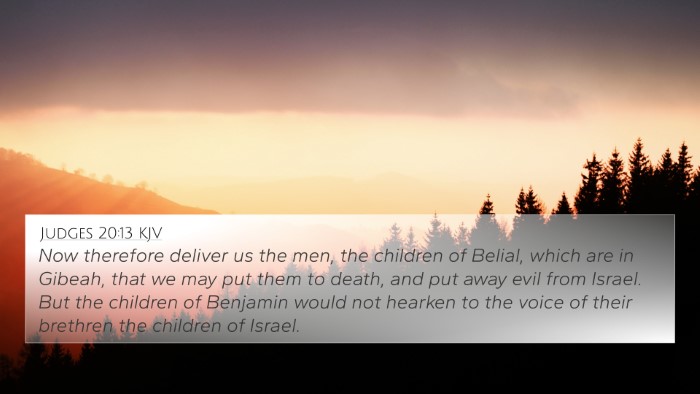
Judges 20:13 (KJV) »
Now therefore deliver us the men, the children of Belial, which are in Gibeah, that we may put them to death, and put away evil from Israel. But the children of Benjamin would not hearken to the voice of their brethren the children of Israel.

Judges 19:22 (KJV) »
Now as they were making their hearts merry, behold, the men of the city, certain sons of Belial, beset the house round about, and beat at the door, and spake to the master of the house, the old man, saying, Bring forth the man that came into thine house, that we may know him.
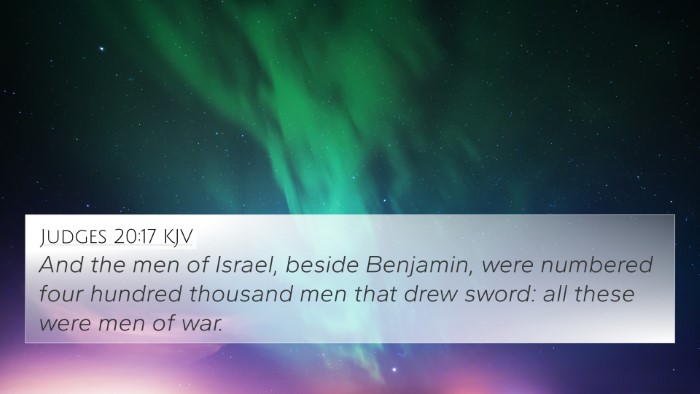
Judges 20:17 (KJV) »
And the men of Israel, beside Benjamin, were numbered four hundred thousand men that drew sword: all these were men of war.
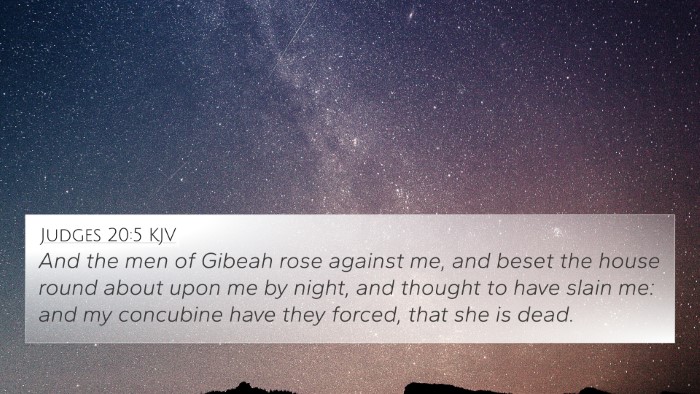
Judges 20:5 (KJV) »
And the men of Gibeah rose against me, and beset the house round about upon me by night, and thought to have slain me: and my concubine have they forced, that she is dead.
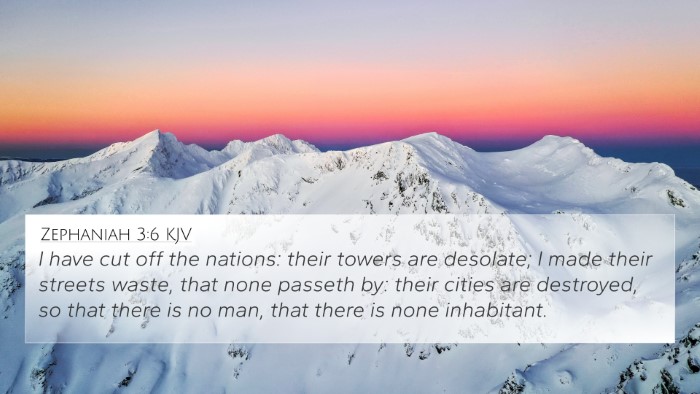
Zephaniah 3:6 (KJV) »
I have cut off the nations: their towers are desolate; I made their streets waste, that none passeth by: their cities are destroyed, so that there is no man, that there is none inhabitant.
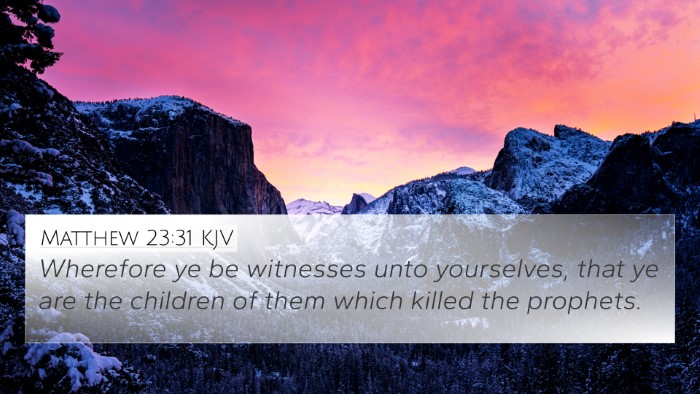
Matthew 23:31 (KJV) »
Wherefore ye be witnesses unto yourselves, that ye are the children of them which killed the prophets.
Hosea 10:9 Verse Analysis and Similar Verses
Understanding Hosea 10:9
Hosea 10:9 states: "O Israel, you have sinned from the days of Gibeah; there they stood. The battle against the children of iniquity did not overtake them." This verse serves as a poignant reminder of Israel's long-standing history of sin, linking it to events from their past that illustrate the consequences of their behavior.
To fully grasp the meaning of this verse, it is crucial to examine its context and significance within the broader narrative of the scripture. Various public domain commentaries provide valuable insights into its implications. The following summaries combine interpretations from renowned scholars like Matthew Henry, Albert Barnes, and Adam Clarke.
Contextual Significance
-
Historical Context:
The reference to Gibeah recalls a dark chapter in Israel's history (Judges 19-20), where moral and civil breakdown led to civil war. This serves to highlight the repetitive nature of sin among the Israelites, reminding them of the disastrous outcomes tied to their rebellious behavior.
-
Thematic Analysis:
This passage demonstrates the theme of divine judgment and the condemnation of persistent sin. It indicates that despite God's past mercies, Israel continued in its transgressions, leading them closer to inevitable judgment.
Key Insights from Commentators
-
Matthew Henry's Commentary:
Henry elaborates on the idea that Israel's sins are not new but have been entrenched in their history for generations. He indicates that the sins of Gibeah symbolize a broader rejection of God's covenant and holiness.
-
Albert Barnes' Notes:
Barnes emphasizes the historical reference, linking Israel's ongoing sinfulness back to Gibeah. He stresses that the nation’s iniquity had reached a point of no return, highlighting the consequences that nations face when turning away from divine statutes.
-
Adam Clarke's Commentary:
Clarke draws attention to the metaphorical significance of Gibeah, elaborating that Israel's current state mirrors the past atrocities committed there. He warns that just as God punished Gibeah, He would bring judgment upon Israel if they failed to repent.
Bible Cross References
This verse connects to several other scriptures that emphasize themes of sin, judgment, and historical reminders:
- Judges 19-20: The account of Gibeah, providing the historical backdrop referenced in Hosea 10:9.
- Isaiah 63:10: Discussing Israel's rebellion against the Spirit of God.
- Jeremiah 3:11-12: Israel's unfaithfulness compared to that of Judah, emphasizing their collective sin.
- Amos 5:4: God's call for Israel to seek Him, so they may live, juxtaposing warning with hope.
- Hosea 4:7: The priests' role in the spiritual decline of Israel, a recurring theme in Hosea.
- Romans 1:18-32: The New Testament parallel regarding God's judgment on sinful humanity.
- Galatians 6:7: The principle of reaping what one sows, applicable to Israel's situation.
Thematic Connections
The continuous cycle of sin, judgment, and the call for repentance resonates throughout both the Old and New Testaments. The connections between these passages highlight an essential aspect of the Biblical narrative — the enduring need for repentance and acknowledgment of sins.
Practical Applications
-
Self-reflection:
This verse invites believers to reflect on their actions and align them with God's principles. It calls for an examination of one's heart in light of historical transgressions.
-
Historical Awareness:
Understanding biblical history enriches one's faith. Believers can learn from Israel's past, avoiding similar pitfalls in their spiritual journey.
-
Emphasis on Repentance:
The continuous need for repentance is a theme echoed in this verse, stressing that God awaits his people’s return.
Conclusion
Hosea 10:9 serves as a grave reminder of Israel's historical transgressions and the overarching theme of God's justice and mercy. As we explore cross-references and connections between the verses, we come to understand the seriousness of sin and the necessity of turning back to God's path.
